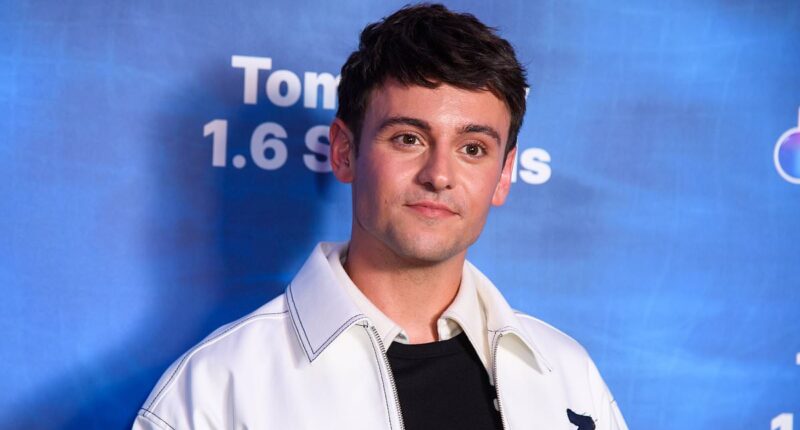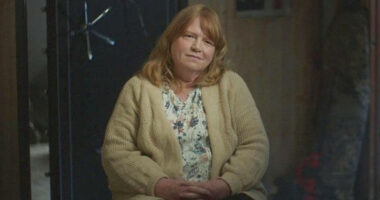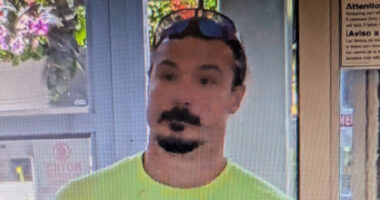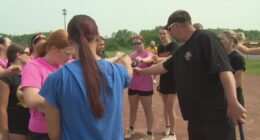Tom Daley, a five-time Olympic medalist, recently shared that during the early stages of his diving career, a former management team advised him to conceal his sexuality.
After retiring post-Paris Games last year, Daley, now 31, is the focal point of an upcoming documentary by Warner Bros. Discovery titled ‘Tom Daley: 1.6 Seconds,’ scheduled for release on June 1.
The 90-minute film delves into the beginnings of Daley’s career, chronicling the triumphs and tribulations of his remarkable journey both in and out of the pool.
As the documentary tackles a tough period during Daley’s life following the 2012 Olympics, it delves into when he first met his now husband, Dustin Lance Black, an Academy Award-winning screenwriter, back in 2013.
The four-time world champion had not revealed that he was gay to the public when he first met Black, and in the documentary, he tells of how professionals closest to him tried to dissuade him from presenting as who he really was.
Daley said: ‘I remember organising a party and telling my management he [Dustin Lance Black] was coming. They [his management team] said to “be careful being photographed with Lance, he is a big LGBT activist. You don’t want people thinking you are gay.”

Former Olympic star Tom Daley has revealed that he was advised to try and hide his sexuality

The Team GB diving star came out as gay in 2013 and wed filmmaker Dustin Lance Black
‘I was suddenly filled with shame. We had all sorts of crisis meetings. You’re gonna lose all your sponsorship. You’re gonna lose all your fans.
‘Like, how are you ever gonna be able to compete in the Middle East, in Russia, in all of these countries? Filling me with fear about what I should and shouldn’t do.’
The documentary sheds light on many of the lowest points in Daley’s life, when all seemed rosy from an outside perspective.
Leading up to the 2012 Olympics in London, Daley suffered mistreatment from senior members within British Swimming – now known as Aquatics GB – which led to an eating disorder.
‘At the end of 2011 I was told that I would have to lose weight by our performance director at British diving,’ continued Daley. ‘And that I was overweight and that I needed to look slimmer, leaner and more like I did in 2008.
‘It was the first time where I felt that I was being looked at and judged not for how I did in the diving pool, but for how I looked. I took some quite drastic measures to make sure the food didn’t stay in my stomach. It was all that I could think about in the lead-up to the Olympic Games.
‘I still feel ashamed talking about it now. Once you’re on the other side, it feels so easy to stop and ask for help. But when you’re in it, you feel like you can’t be helped.
‘In my head, guys didn’t have eating orders, guys didn’t have any problems with mental health. Guys were meant to be macho.

Leading up to the 2012 Olympics, Daley suffered mistreatment which led to an eating disorder

In 2008, he became the second youngest male Olympian in British history at the Beijing Games

‘I didn’t have anyone I could talk to; I felt very alone in the things I was dealing with. I tortured myself through this whole experience because I wanted to do it so badly.’
Daley’s professional journey in the pool started while still in secondary school. In 2008, he became the second youngest male Olympian in British history when he was selected for the Beijing Games at just 14 years old.
It was the only Olympics that Daley would fail to medal in, but he still managed an impressive seventh-placed finish at the start of what was a special career in the sport.
However, upon returning to school to take on the first year of his GCSEs, Daley was tormented by his fellow classmates.
‘I remember this being horrible at school,’ Daley admitted. ‘Me and my friend were given a key to lock ourselves in a classroom to get away at lunchtime.
‘It affected home life, school life, diving life. I felt like my whole life was coming to an end.
‘I don’t think people realised how much it impacted me. I didn’t really talk about it, I was almost embarrassed.’

















